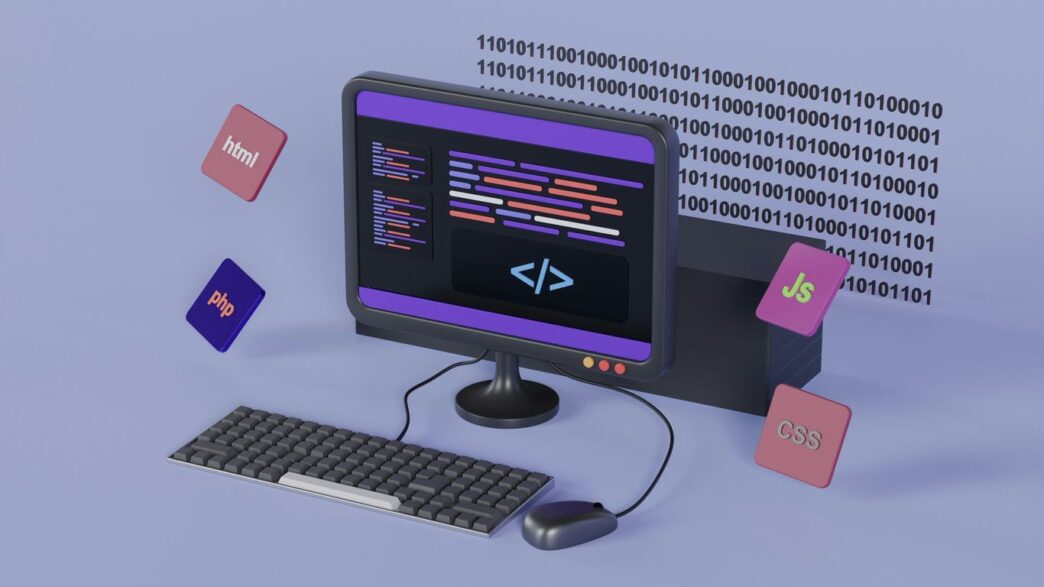Online communities dedicated to cybersecurity and hacking have been around for a while. These spaces, often called hackforums, serve as hubs for people interested in everything from learning new security skills to discussing the latest cyber threats. They’ve played a role in how we think about online safety and the people who work in this field. This article looks at the history of these hackforum spaces, what they offer, and how they’ve shaped the world of cybersecurity.
Key Takeaways
- Hackforums have evolved from simple discussion boards to complex communities sharing knowledge and tools related to cybersecurity.
- These platforms offer resources like tutorials and tools, but also require members to follow guidelines to maintain a focus on ethical practices.
- The impact of hackforums on cybersecurity is twofold, contributing to ethical hacking advancements while also presenting risks of misuse.
- Several notable hackforum platforms exist, each with its own focus, from beginner-friendly learning to advanced technical discussions.
- Understanding how to use hackforums responsibly is important for skill development and staying informed about cybersecurity trends.
The Genesis and Evolution of Hack Forums

Early Days of Online Security Discussions
Back in the day, before the internet was the sprawling digital city it is now, talking about computer security and how things worked was a bit more scattered. Think Usenet groups, early bulletin board systems (BBS), and small, niche mailing lists. People interested in how computers talked to each other, and more importantly, how to protect them (or, you know, not protect them), found each other in these digital corners. It wasn’t about organized forums yet, but more like finding like-minded folks in a digital wilderness. Discussions often revolved around understanding system vulnerabilities, sharing basic code snippets, and figuring out how to get around limitations. These early conversations laid the groundwork for what would become a massive online subculture. It was a time of exploration, where the digital frontier was still being mapped out.
The Rise of Dedicated Hack Forum Communities
As the internet grew, so did the need for more structured places to talk. This is when dedicated forums started popping up. Instead of sifting through general tech discussions, people could go to places specifically built for hacking, security, and all things in between. These platforms became hubs. You had sections for different operating systems, programming languages, and even specific types of security topics. It was like moving from a general store to specialized shops. People started sharing more complex tools, writing detailed tutorials, and forming actual communities around shared interests. This period saw the birth of many platforms that are still talked about today, each with its own flavor and focus.
Hack Forums’ Role in Shaping Cyber Culture
These forums weren’t just places to swap information; they actively shaped the culture around hacking and cybersecurity. They became breeding grounds for new ideas, slang, and even the public perception of hackers. Whether it was discussing the latest exploits or debating the ethics of certain actions, these communities influenced how people thought about digital security. Some forums became known for their more aggressive or underground activities, while others focused on education and ethical practices. This diversity of purpose meant hack forums played a complex role, sometimes seen as a source of innovation and other times as a platform for illicit activities. They provided a space for both learning and, unfortunately, for misuse, reflecting the dual nature of the skills discussed within them.
Key Features and Functionality of Hack Forums
So, what exactly makes these hack forums tick? It’s not just random chatter; there’s a structure and purpose behind them. Think of them as digital workshops where people share what they know and what they’re working on.
Resource Sharing and Tool Distribution
This is a big one. You’ll find a lot of places where users share software, scripts, and custom tools. Sometimes these are for testing security, other times they’re more general utilities. It’s like a digital toolbox that members contribute to. You might see things like:
- Custom-made scripts for automating tasks.
- Exploit kits for testing system weaknesses.
- Tools for network scanning and analysis.
- Guides on how to use specific software.
The idea is that by sharing these resources, everyone can learn and build upon them. It’s a way to get access to specialized software that might otherwise be hard to find or expensive.
Tutorials and Knowledge Exchange
Beyond just tools, there’s a huge emphasis on learning. You’ll find countless threads dedicated to explaining how things work. Whether it’s a step-by-step guide on setting up a virtual machine for testing, or a detailed breakdown of how a specific type of malware operates, the knowledge exchange is constant. People post their own tutorials, ask questions, and help each other out. It’s a pretty active learning environment.
Community Moderation and Ethical Guidelines
Now, this is where things can get a bit tricky. Most reputable hack forums have rules. They usually try to keep discussions focused on ethical hacking and security. Moderators often step in to remove content that promotes illegal activities or is just plain harmful. They might have guidelines like:
- No sharing of illegal content or instructions for illegal acts.
- Respect other members and their contributions.
- Keep discussions relevant to cybersecurity and ethical hacking.
However, the effectiveness of this moderation can vary a lot from one forum to another. Some are very strict, while others are more relaxed, which can sometimes lead to a mix of ethical and less-than-ethical content being shared.
Impact of Hack Forums on Cybersecurity
Hack forums have a pretty big effect on how we think about online security, both good and bad. They’re places where people share information, and that information can be used in a lot of different ways.
Fostering Ethical Hacking Practices
Lots of these forums are actually set up to help people learn about security the right way. They’re like digital classrooms where experienced folks can show newer members how to find weaknesses in systems without causing harm. Think of it like learning to pick locks, but instead of breaking into houses, you’re learning how to secure them. Many sites have rules against illegal stuff, and they encourage members to report what they find to companies so they can fix things before bad actors do. It’s a way to build up a community of people who are good at spotting problems and want to help make the internet safer.
- Learning Resources: Many forums offer tutorials and guides on topics like network scanning, vulnerability analysis, and secure coding.
- Mentorship: Experienced members often answer questions from beginners, guiding them on ethical approaches.
- Challenges: Some platforms host practice challenges that simulate real-world security scenarios, allowing users to hone their skills legally.
Identifying and Addressing Vulnerabilities
These communities can be goldmines for finding security flaws. When a new vulnerability pops up, it’s often discussed on these forums before it becomes widely known. This early chatter can alert security professionals and companies to potential risks, giving them a head start on patching their systems. It’s a bit like an early warning system. However, this also means that if a forum isn’t well-moderated, information about vulnerabilities could fall into the wrong hands, leading to exploitation.
The Dual Nature: Innovation and Exploitation
It’s a real mixed bag, honestly. On one hand, these forums are where new security tools and techniques are often born. People share code, discuss new attack methods (to understand how to defend against them), and collaborate on projects that push the boundaries of cybersecurity. But, and this is a big but, the same information can be used for malicious purposes. A tool shared for testing can be used for actual attacks. A discussion about bypassing a security measure can be used by criminals to do just that. The line between ethical exploration and illegal activity can be very thin on these platforms.
Here’s a quick look at how information can be used:
| Type of Information Shared | Ethical Use |
|---|---|
| Vulnerability Details | Reporting to vendors for patching |
| Exploit Code | Testing defenses, developing security tools |
| Hacking Tools | Security audits, penetration testing |
| Discussion of Methods | Understanding threats, improving defenses |
| Malicious Use | Exploiting systems, data theft, ransomware attacks |
Notable Hack Forum Platforms
When you start looking into the world of online security and hacking, you’ll quickly find that there are a bunch of places people gather to talk about it. Some are more well-known than others, and each has its own vibe and focus. It’s like picking a neighborhood to hang out in – you want one that fits what you’re looking for.
Hack Forums: A Central Hub
Hack Forums has been around for a long time, and it’s one of the biggest names out there. Think of it as a massive town square for people interested in hacking, cybersecurity, and all sorts of tech stuff. You can find tons of discussions, tutorials, and people sharing tools. It’s a place where both beginners and experienced folks hang out. Because it’s so big, you can find information on almost anything, from learning basic coding to discussing advanced security exploits. It’s a place that really reflects the broad spectrum of interest in hacking.
Exploit.in: A Decade of Expertise
Exploit.in is another long-standing platform, having been active for over ten years. It’s known for its community of security researchers and developers who are serious about sharing what they know. The discussions here often get pretty technical, covering the latest security flaws and the best ways to ethically test systems. If you’re looking for in-depth conversations and resources for your own projects, this is a good spot to check out. It’s a place where people share code snippets and talk about new tools.
0x00sec: Knowledge and Tools
0x00sec was set up with a clear goal: to give its members the knowledge and tools they need to get ahead in cybersecurity. The community is made up of professionals and enthusiasts from all over the globe. They cover a lot of ground, from the basics of security to more complex ways of finding and using system weaknesses. They also have projects going on, like platforms for testing security. It’s a place that really focuses on learning and sharing practical skills.
Navigating the Hack Forum Landscape

So, you’re interested in the world of hacking, huh? It can seem like a big, confusing place at first, especially when you’re just starting out. But don’t worry, there are plenty of online spots where people talk about this stuff, share what they know, and help each other out. The trick is figuring out which places are legit and which ones might lead you down a rabbit hole of bad links or even illegal activities. It’s really important to find communities that focus on learning and security, not just causing trouble.
Finding Beginner-Friendly Hack Forums
If you’re new to this, you’ll want to look for forums that are welcoming to newcomers. Some places are really good at this. They often have sections specifically for beginners to ask questions without feeling silly. You’ll find that places like the Jean Valjean forum or Tinkernut are often mentioned as good starting points. These communities tend to have more experienced members who are willing to share their knowledge and guide you. It’s all about finding a supportive environment where you can ask those basic questions and get helpful answers. Remember, everyone starts somewhere, and a good forum will recognize that.
Distinguishing Ethical from Malicious Platforms
This is probably the most important part. Not all forums are created equal. Some are dedicated to learning and improving cybersecurity, which is great. Others, however, might be filled with links that don’t do what they say they will, or worse, are designed to trick you into downloading something harmful. You’ve got to be careful. Look for forums that have clear rules about what’s allowed and what’s not. If a forum seems to encourage illegal activities or has a lot of broken links that just lead to ads, it’s probably best to steer clear. Sites that focus on social engineering or deceptive practices are a big red flag. Always check the community’s reputation and moderation policies before you get too involved. A good sign is a forum that actively removes bad content and bans users who break the rules.
Leveraging Hack Forums for Skill Development
Once you’ve found a good place, how do you actually get better? It’s not just about lurking. You need to participate. Start by reading the tutorials and discussions. See what problems people are trying to solve and how they’re going about it. If you have a question, ask it! You might be surprised how many people are happy to help. Some forums even have challenges or practice labs you can use to test your skills in a safe way. Think of it like a digital workshop. You can find resources, learn new techniques, and even connect with others who share your interests. The key is to be an active learner and contributor. Don’t be afraid to share what you learn, too. Teaching others is a fantastic way to solidify your own understanding. You can find a lot of useful information on sites like Exploit.in if you look carefully.
The Future Trajectory of Hack Forums
So, what’s next for these online hubs of digital exploration? It’s a pretty interesting question, right? As the digital world keeps changing, so do these forums. They’re not static; they have to keep up.
Adapting to Evolving Cyber Threats
One of the biggest things is how these communities will handle new kinds of cyber threats. We’re seeing more sophisticated attacks all the time, and forums need to be places where people can talk about these without actually causing harm. This means a constant need for updated discussions and shared knowledge on defense strategies. It’s like a digital arms race, and these forums are part of the information flow. Think about how quickly new malware pops up; forums are often where the first analyses and discussions happen. It’s a bit of a cat-and-mouse game, and the forums are where the mice and cats often meet to compare notes, so to speak.
The Role of Hack Forums in Cybersecurity Education
Beyond just reacting to threats, these places are becoming more important for learning. For folks just starting out, finding reliable information can be tough. Good forums offer structured learning paths, like tutorials and Q&A sections. They can help people understand complex topics without getting lost in the noise. It’s not just about learning how to break things, but how to build and protect them too. Many are starting to offer more beginner-friendly content, which is a good sign. You can find discussions on everything from basic network security to advanced exploit development. It’s a place where you can ask those
Looking Back and Moving Forward
So, we’ve taken a look at how places like Hack Forums have grown and changed over the years. It’s clear these online spots have played a big part in how people learn about and talk about computer security, both the good and the not-so-good sides. While some communities focus on sharing knowledge and helping beginners, others have had a more mixed reputation. What’s important is that the conversation around cybersecurity continues, and these forums, in their own ways, have been a part of that ongoing story. As technology keeps changing, so will these online spaces and the discussions happening within them.
Frequently Asked Questions
What exactly are these “hack forums” people talk about?
Think of hack forums as online clubs or meeting places where people interested in computers and security get together. They talk about how computers work, how to keep them safe, and sometimes, how to find weak spots in systems, usually with good intentions.
Are all these forums about doing illegal stuff?
Not at all! Many of these places are all about learning and improving computer security the right way, which is called ‘ethical hacking.’ It’s like learning how to pick locks to understand how locks work, so you can make them stronger, not to break into houses.
Where should someone new start if they want to learn about this?
For beginners, it’s best to look for forums that focus on teaching and have friendly communities. Places that offer guides, tutorials, and have sections for new members to ask questions without feeling silly are a great starting point.
What kind of things do people share on these forums?
You’ll find all sorts of helpful things! People share guides on how to do certain computer tasks, tips for making systems more secure, news about new computer threats, and sometimes even special tools that can help with security testing.
How do these forums help make the internet safer?
By sharing knowledge, people on these forums help discover and fix security problems before bad guys can exploit them. It’s like a big group effort to find bugs in software and report them so they can be fixed, making everything more secure for everyone.
Are there any famous or really old hack forums?
Yes, some forums have been around for a long time and are well-known. Sites like Hack Forums, Exploit.in, and 0x00sec are examples that have been active for years, building up large communities and lots of shared knowledge.














